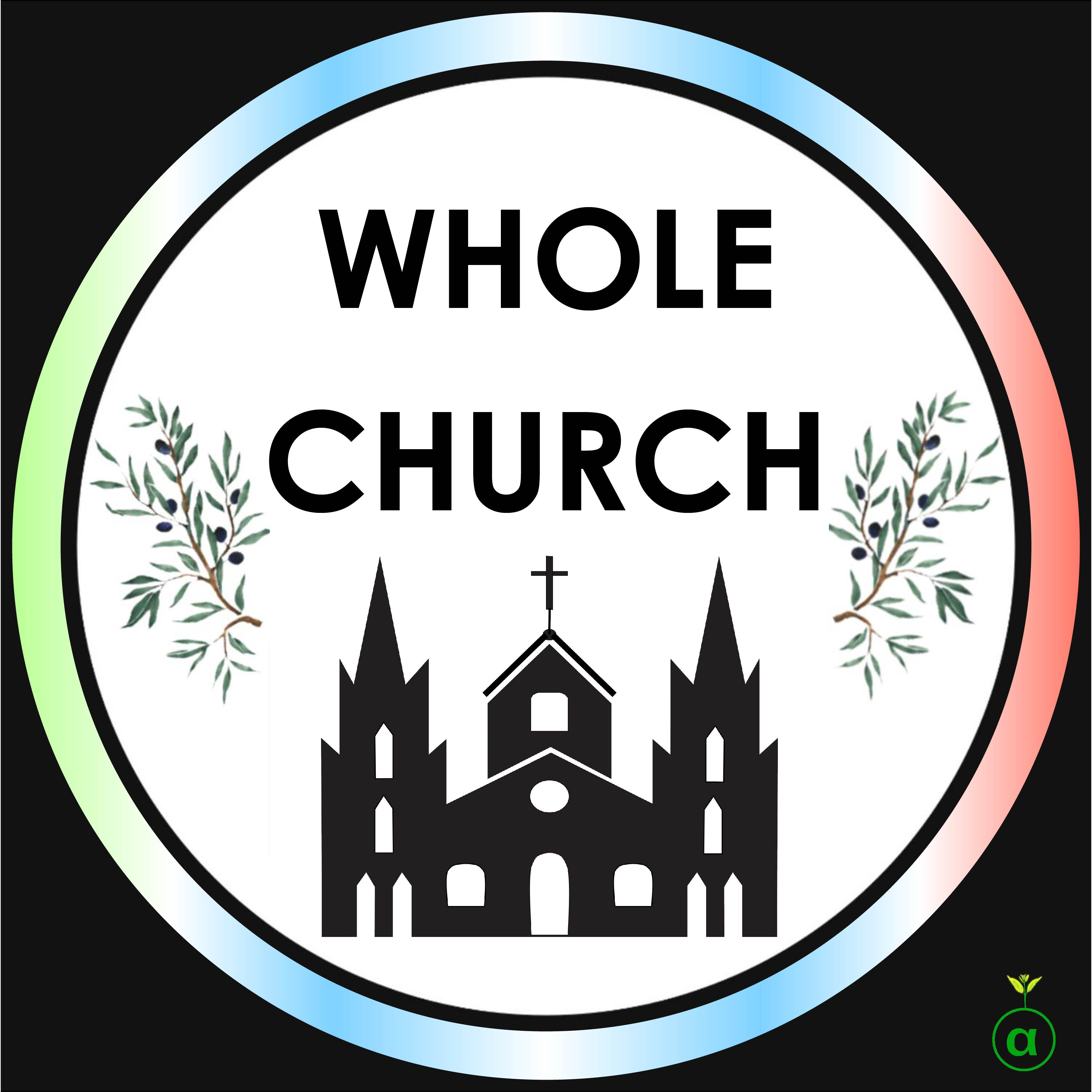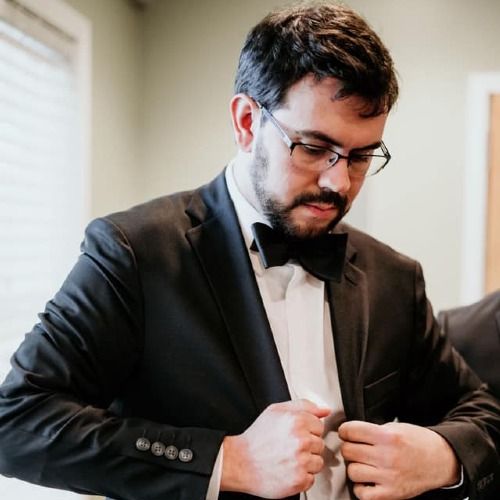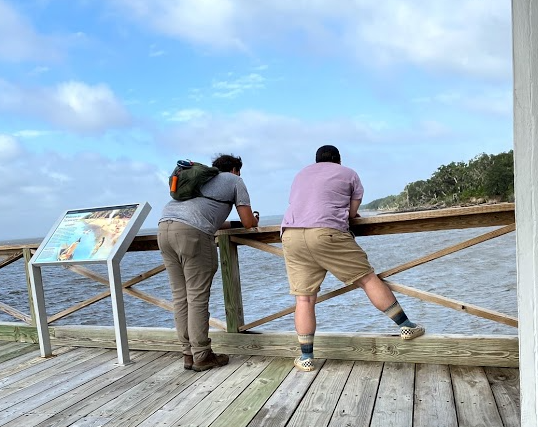bonus
The Science Faith Dialogue: A Bonus Episode with Dr. Lucas
This podcast segment features an enlightening discussion with Dr. Ernest C. Lucas, wherein he elucidates his unique perspective on the intricate relationship between faith and science. At the core of our conversation lies the assertion that a Christian worldview is foundational to the practice of modern science, as it fosters an understanding of the world as an ordered and stable entity. Dr. Lucas recounts his personal journey of intertwining scientific inquiry with his Christian beliefs, emphasizing that the exploration of the natural world can enhance one's understanding of the divine. As we delve deeper into this discourse, we are unexpectedly joined by Dr. Peter Beck, who contributes his own insights regarding the intersection of scientific discovery and spiritual awareness. This segment serves as a precursor to our forthcoming series, "The Whole Church Science Fair," providing valuable context and thought-provoking questions to consider as we navigate these complex themes.
The dialogue presented in this bonus segment features Joshua Noel, TJ Blackwell, and Dr. Ernest C. Lucas, who explore the nuanced relationship between faith and science in anticipation of the forthcoming series, "The Whole Church Science Fair." This episode was originally crafted as an exclusive offering for Patreon subscribers, thus providing a unique glimpse into the preparatory discussions leading up to a more extensive examination of these themes. Dr. Lucas recounts his journey of reconciling his Christian faith with an early fascination with the sciences, particularly astronomy, which flourished during his youth. He articulates a perspective that views the Bible not as a scientific manual, but as a source of understanding regarding the divine purpose behind creation, thus allowing for a confluence of scientific and spiritual insights.
Central to the conversation is the assertion that a Christian worldview underpins scientific exploration, suggesting that the principles of modern science are inherently tied to theological foundations. Dr. Lucas posits that the pursuit of knowledge and understanding is a divine calling, encouraging scientists to delve deeper into the mysteries of the universe while recognizing that their ability to comprehend such complexities is a gift from God. This discourse prompts an examination of how faith can enrich one's scientific endeavors, fostering a holistic appreciation of the world as a manifestation of divine creation.
The segment is further enriched by the unexpected appearance of Dr. Peter Beck, who contributes additional perspectives on the relationship between faith and scientific inquiry. Together, the participants pose thought-provoking questions that challenge both scientists and laypersons to reflect on their beliefs regarding the interplay of faith and reason. This episode serves as a profound introduction to the upcoming series, inviting listeners to engage with the intricate dynamics of faith and science, ultimately fostering a deeper understanding of both realms.
.
Check out our previous full episode with Dr Ernest C Lucas discussing Christian Unity from the perspective of the book of Daniel and the biblical Proverbs:
.
Be sure to check out our website to become a member to get more great extras like this segment:
https://the-whole-church-podcast-shop.fourthwall.com/
Mentioned in this episode:
Easily subscribe to our show wherever you listen!
https://the-whole-church-podcast.captivate.fm/listen
Check out the other AMP Network shows!
https://anazao-ministries.captivate.fm . https://open.spotify.com/show/725pdvTzkle0fDWK2sdxnD?si=e317918366e04338 https://podcasts.apple.com/us/channel/anazao-podcasts/id6447432145
Transcript
Hey, everyone, thank you so much for your time and your patience.
And we've been on a little bit of a pause between our regular episodes in the upcoming Whole Church Science Fair miniseries that we have coming up just next week for you guys. Because I know it's been a little bit of a pause, we wanted to go ahead and offer you guys a little bit of a bonus.
So this was something that we put up as I think it was free content on our new website or fourth wall site that we wanted to offer to you all as a bonus segment for just following the show and waiting so patiently on us to get this science fair put together. And this was just something we recorded with Dr. Ernest C. Lucas after our episode we did with him on Daniel and Proverbs.
If you haven't listened that, go ahead and check that episode out as well.
Afterwards, since we knew that he did some work with science, we asked him what he thought we should talk about in the Faith and Science segment series that we have coming up. And we had a surprise cameo. Join us near the end. So be sure to listen to the full episode if you want to know who it was.
Surprise joined us during our recording. I think you guys won't be disappointed. This was a whole lot of fun.
And again, thank you guys so much for your patience and for supporting our show and following us wherever you get your podcast. You guys are amazing. Thank you and we hope you enjoy this bonus segment. All right, we are here with Dr. Ernest Lucas.
We just finished wrapping up our episode on Daniel and Proverbs. If you guys haven't listened to it, I highly recommend it. It was great. I, of course, am Joshua Noel, here with the co host with the absolute most.
In fact, the word most was invented. When God first thought of tj, he was like, wow, he's got the most. That's when God created the word of most.
It's the only divinely inspired word in the English language. The rest are all Hebrew words. But yeah, we're still here. Dr. Ernest Lucas, we talked to him about some of his biblical work with Daniel and Proverbs.
As I mentioned, I had a really fun time because I geek out on Bible stuff and I love Bible. Bible's just fun. I often say, even if I wasn't Christian, I think I would still know a lot about the Bible just because it's a good book.
Like, I just love it and a piece of literature. But that's not why we're here. We're here to talk about faith and science.
So for our patrons, you Guys may be aware we are about to start a faith and science series. It probably won't be a very long series, but for some reason, I've done more work on it than some of the other ones.
We're going to have T shirts for it. We're going have a new banner on our Facebook group. We have a whole image made for it. It's going to be a ton of fun, I think.
And it's also to build up and announce a podcast that's going to be done in association with the Evangelical Lutheran Church of America. It's an educational podcast series that will be done with Pastor Will Rose. And I'm forgetting the other guy's name. I want to say Evan Johnston.
I could be wrong, though. Yeah. Anyway, they're going to be doing a podcast called your Matter Matters. That's all going to be about faith and science.
It's going to be to help the Lutheran Church kind of navigate some of these issues. But it will be available to everyone through the Amazon Podcast Network. This is the most businessy I think I've ever sounded, maybe ever.
Yeah, this is weird. TJ take over and make this sound more like our podcast.
TJ Blackwell:Yeah, that's hard to do because faith and science is also something I've, you know, grappled with a lot. And by grappled with, I mean accepted wholeheartedly since I was a child.
So I was actually pretty curious about your history with the topic, Dr. Lucas. For me, I went to a Baptist college and, you know, they challenged my understanding of science.
I was always into science as a kid, but not in the way that most people would probably think when they hear that.
I just had different ideas of how they're intertwined, like the creation story, you know, going to a school where they're pushing young Earth creationism, all of a sudden, that's not something I was used to. I had like a hybrid view at that point.
And still today I do honestly of, you know, I. I believe that God created the Big Bang and that's something observable that we can see and measure and use to define God's glory. But you mentioned it a little bit during the show and just curious about what your, you know, start with faith in science was.
Ernest C Lucas:I grew up in an active Bible believing Christian family. I discovered science when I was about 8 years old. I happened to. I have a background in India. I happen to have a very serious tropical disease.
And as I was recovering from that, my elder brother, who is, who, who I was 13 years older than me, did something he'd never done before. He allowed me to have access to his bookcase. And I picked up this very introductory book on astronomy. And I read it and I was just fascinated.
I knew from the animals I wanted to be a psi it. And from then on I read from our local libraries and so on, whatever I could on it.
And I never found any problem with relating it to my Christian faith and to the Bible, because even as at that stage, it seems to me that the Bible is telling us not about how God created the world in any detail, but why God created the world and what is the nature of the world and what is our place in the world. And so I never saw any. Any great conflict. And I read, I can't remember his name Now, a book by a professor at Oxford who's a Methodist.
But he made the point.
He said we mustn't have a God of the gaps, a God who we bring in to solve our problems when the scientists don't seem to be able to do it about the world. If in my research I come across something I don't understand from the science, I don't say, well, God must have done that.
I say, I've got to be a better scientist because that's what God has called me to be. And God has given me the ability to study his world and to understand his world. And that's my responsibility. So that has been the like.
That was the sort of way I related my science and faith.
Then, then when I studied theology and then became a biblical studies tutor studying biblical studies, what to me is very important is it seems to be a central Christian doctrine is the doctrine of incarnation. And we see that in John 1:14, the word became flesh and dwelt among us. The fullest revelation we have of God is in the human being, in flesh.
That's where incarnation comes from, in flesh. But he was a specific person in a specific culture at a particular time, focused, specific language. And that colors the whole way of Jesus teaching.
I mean, his parables are drawn from the world of his time and the agricultural world of his time and so on. But that's not just true of Jesus. That's true of God's revelation throughout the Bible.
It's always incarnated in the situation of the people to whom they are inspired to speak.
And that's why it seems to me so important to recognize that the Bible, when it talks about the physical world, it's not passing on to a scientific information about the world. It talks about the physical world in the way that was Understandable to the people of the time.
And that is why, um, yeah, for instance, John Calvin, you know, he was a great biblical scholar, leading reformer. And John Calvin said the Holy Spirit. And he's talking about Psalm 136 as it happens, which, that's a psalm which is about creation.
The Holy Spirit had no intention to teach astronomy.
And in proposing instruction meant to be common to the simplest and most uneducated person, he made use by Moses and the other prophets as the popular language. But the Holy Spirit would rather speak childishly and unintelligibly to the humble and the unlearned.
So God comes down to human level when he's talking about the world of the day. He talks about the world in the way they understood the world. A flat earth and all the rest of it.
And that's because what's important is not what's said about the world, but what is said about God and humans and their place in the world and theology. And so I've never thought it was. I've never. Well, I've always thought it was wrong.
If you like to try and accommodate, if you like Genesis 1 to any particular scientific theory down through the ages, what's the theology? It's like the prophecy in Daniel. What's the theology of Genesis 1? That's the important thing.
And don't try and read scientific information about it again. Calvin happened to say it in Genesis 1. He who would learn astronomy and other recondite arts, let him go elsewhere.
I don't think Genesis 1, God has given you a mind to study his world. The important thing that Genesis 1 says is it is a well planned world. It's an organized world.
It's a world which is stable and so on and therefore continues in being. And he's given us minds. We are made in the image of God. We've got minds which can understand something of you.
Like the patterns that God has put in the world, what we call natural laws. And it's our responsibility to study this to see what God has done and how the world works. It's not the Bible that tells us that.
Joshua Noel:Yeah, yeah. So hopefully this is okay. We are about to do another bonus episode for an episode that came out before this.
Guys, time's weird and our guest, Dr. Peter Beck is already here. I mentioned that we were getting ready to wrap up here and try to schedule a little bit early.
So hopefully Dr. Beck doesn't mind me putting them on the spot. We are doing a bonus episode right now preparing for Faith and Science.
We're getting Ready to wrap up, but I'm gonna ask Dr. Beck and then Dr. Lucas, before you go, if you guys had to give us advice on what we should ask people, we're having a lot of scientists on for this series about faith and science. What do you think we should ask? Sorry for the surprise because I didn't.
Peter Beck:Hear the whole discussion before I got online here.
Joshua Noel:Surprise cameo, everybody.
Peter Beck:Exactly. Welcome to the show, folks.
But no, I think that's a great question without having the context obviously behind it, because, you know, I argue even with some of our professors of science at our school, in many ways, Christian scientists, that mean scientists who are Christian, have to be the best scientists and scholars because they have to not only account for what they're seeing, but also figure out how to rightly bring it into the spiritual context. Or to answer the question, what are we learning spiritually about God from the creation?
And so, in one sense, I want to know, what have they seen discovered in their studies that most points them to a knowledge and an intimate relationship with God, a la Paul in Romans, chapter one.
Joshua Noel:Ooh, okay, I like that. I like that. I'm going to add it to our, our outlines.
Dr. Lucas, before we let you go, if you had to give us an advice for like one or two questions to add, when we ask scientists who are Christians about the relationship of faith and science, what what would you have us ask them?
Ernest C Lucas:Well, do they realize and can they communicate to their non Christian colleagues that modern science is based upon a Christian worldview? And if you go back in history that in fact is the case, you go back to the Genesis, it's Genesis.
That and the Christian doctrine of creation that says, gives you the basis to believe that this is an ordered, structured, stable world and that you have a mind that is able to understand that world. What other basis is there for doing science than that? And what other than Christianity can give you that basis?
If we can humbly get that across to non Christian colleagues that we work with in science, this is a way. And you know, I used to challenge them and say, why do you believe that your mind is capable of understanding the world? And why should.
If your mind is just the chance product of a lengthy random process, why should your mind be able to understand the world and in an effective way? Because the fact we understand it, it means we can do an amazing thing. We found we must have.
There must be some truth in what we have discovered because we can do so much with it.
Joshua Noel:Yeah, yeah, I like that. Good questions, good questions. Thank you, Dr. Lucas, for your time. Thank you Dr. Beck for playing along when I added you surprise at the end of year.
And yeah, for those patrons, the thing with Dr. Beck probably already released, but we haven't recorded it yet Again, time is weird. So check that out if you haven't. And yeah, thank you guys. And until next time later.




